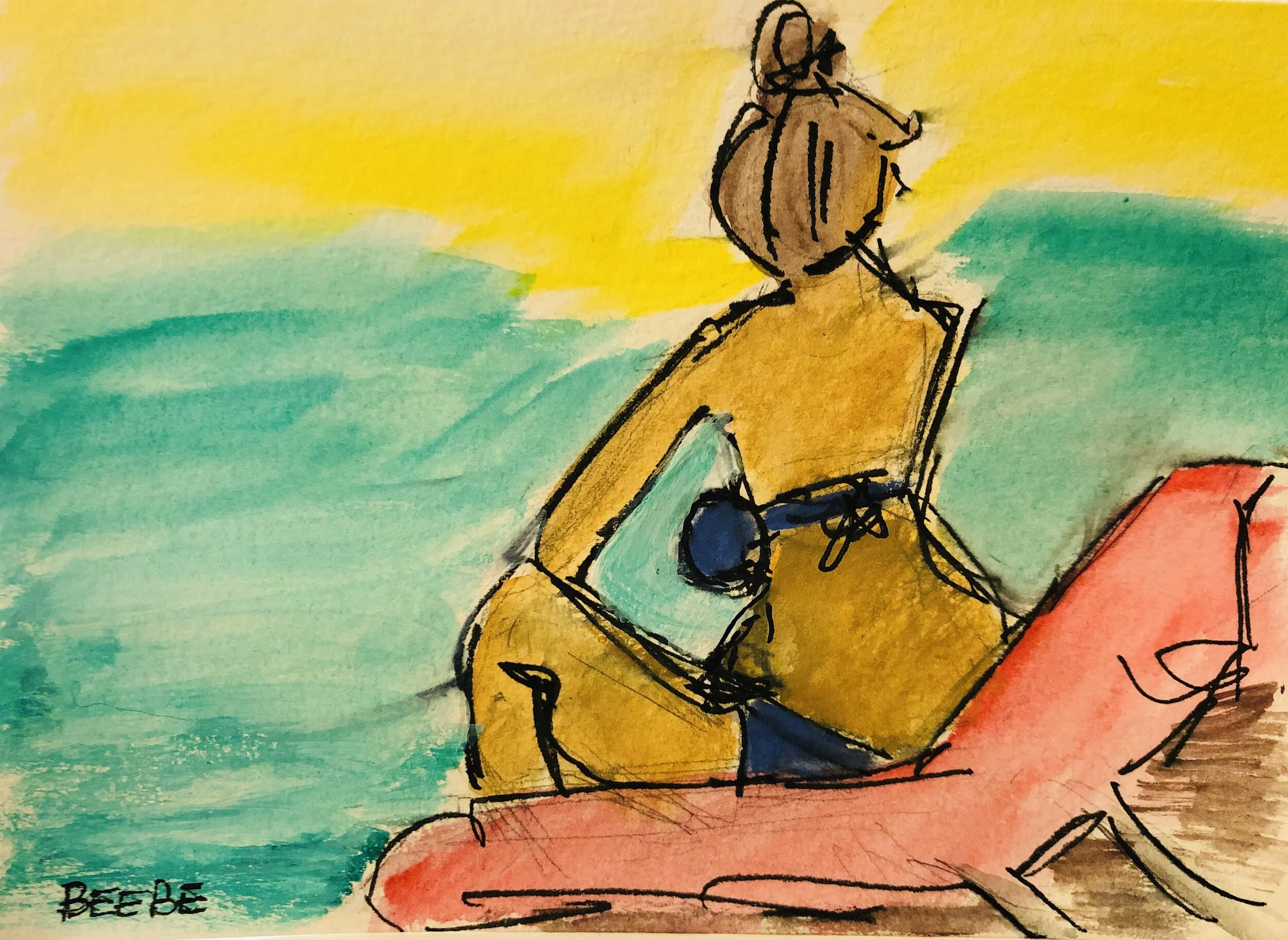Happy accidents
There are no mistakes. Only happy accidents.
Art teachers often say this. And as a novice painter, I enjoy that idea.
Maybe that smudge is a bank of storm clouds, threatening rain. The mishmash in the swirl of blue water might be a woman’s limbs.
It’s useful to be generous when viewing our amateur art.
But what about in the rest of our lives? Could it also be said that There are no mistakes. Only happy accidents?
Today is the three-month anniversary of my hit-and-run accident. When I woke up in the hospital, I definitely wasn’t happy. I was sure there had been some mistake.
And yet—things have turned out so well.
Six weeks after the accident, I shared six lessons. Some of those lessons were gifts. The kindness of friends. My next-level minimalism. The stillness that brought me such peace.
Today, with six more weeks of healing under my belt, the incident—a.k.a. the accident— recedes further into the past. My rib fractures are healed enough that I can swim gentle laps in the pool. And I’m managing my fear that I’ll be taken down hard by an out-of-control skier approaching from the left.
Soon, I may even forget.
And yet, I believe we are profoundly changed when something traumatic happens.
In my case, I’ve become even more convinced that Stoic wisdom can help us through even the worst of times.
Here’s what I’m thinking:
An incident is an “accident” when we don’t see it coming. When the unexpected happens, it’s tempting to cast blame. Or to regret that we didn’t have a plan. But in truth, there is precious little we can control. To think otherwise is to squander precious energy.
An accident is “happy” when we find beauty in it. The time we spend healing or recovering can bring out the best in us and in others. We see resilience and generosity. We find strength we didn’t know we had. In the stillness, we discover new things that may even matter more to us than our former, petty concerns.
If all incidents are accidents, and all accidents are happy, then we are truly free. According to Epictetus, the ex-slave and Stoic philosopher, the key to freedom lies in our inner power to frame what is happening around us. We can react with equanimity to even the most stressful situations.
I don’t mean to minimize the lasting traumas that may truly knock us flat. The Alzheimer’s diagnosis we didn’t see coming. The cancer that has come back. The lover who breaks our heart. We can’t know in advance how we will handle such things.
But I do believe this. We have more power than we think.
Even if that power is only over what we believe.






